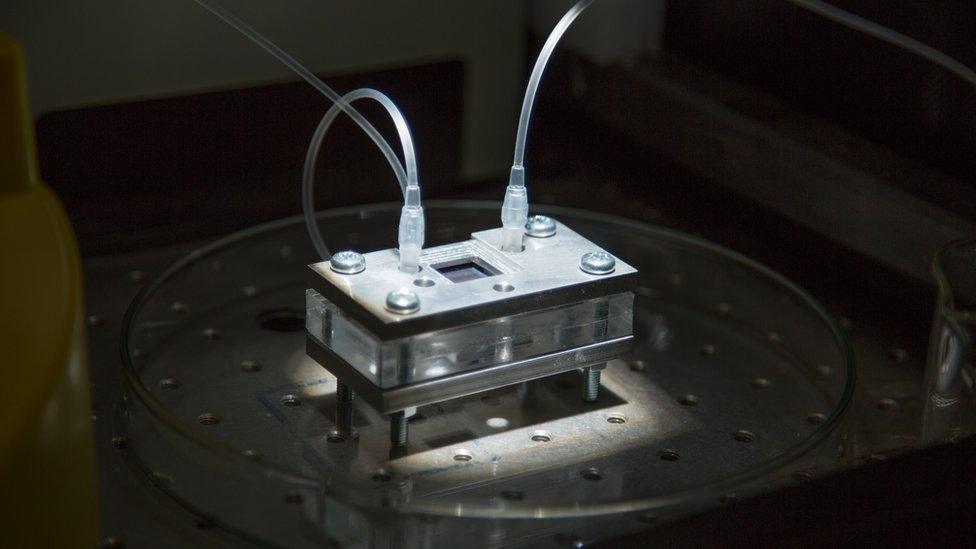Firm seeks world first with hydrogen gas for Levenmouth homes
- Published
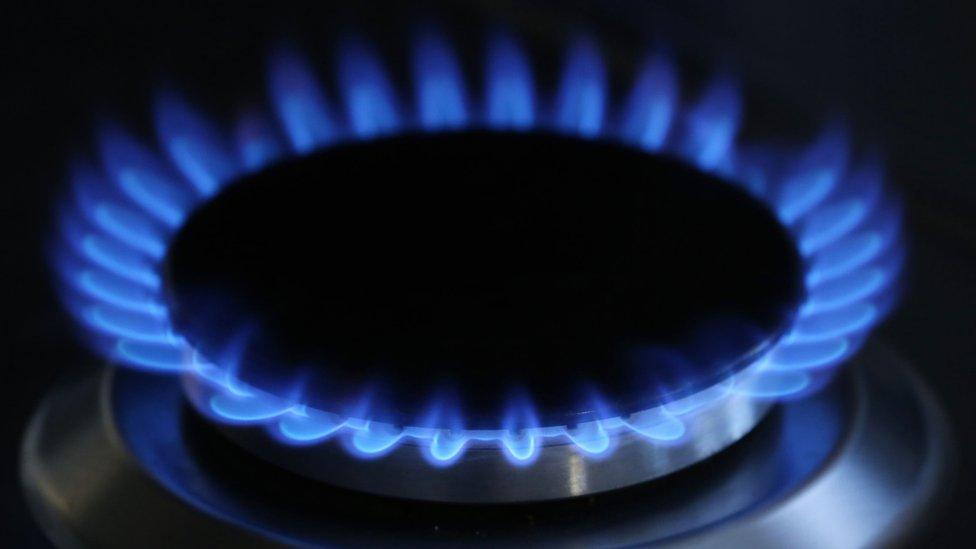
The hydrogen would replace natural gas as a green alternative for heating and cooking
The world's first fully renewable hydrogen network for homes could be built in Scotland if permission is given by the energy regulator.
SGN says it has asked Ofgem if it can build the H100 Fife facility to serve 300 homes at Levenmouth with the option to expand further.
The hydrogen would replace natural gas as a green alternative for heating and cooking.
The company hopes to have it operational within about three years.
Offshore wind would be used to generate the electricity required to create the hydrogen from water through a process called electrolysis.
New pipes will be laid alongside 1,000 properties, meaning home owners would have the choice of receiving their existing gas supply or the hydrogen alternative.
SGN says it does not believe the Covid-19 pandemic will delay work, with construction expected to begin in early 2021.
The first homes could be heated from hydrogen "within two to three years."
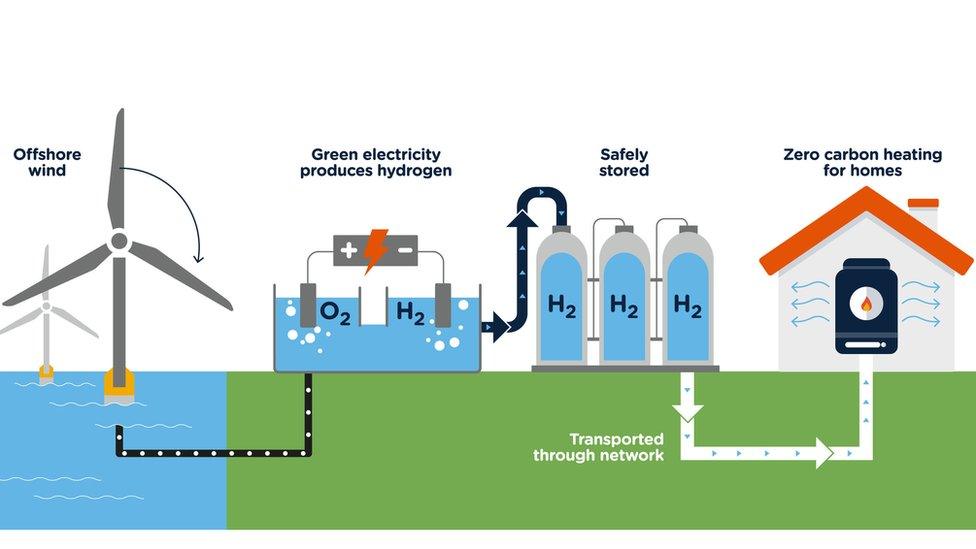
Offshore wind would be used to generate the electricity required to create the hydrogen from water
Angus McIntosh, director of energy futures at SGN, said: "Hydrogen is an exciting energy vector that at scale could provide similar levels of safe, secure, reliable and affordable energy to what we enjoy now, with minimal disruption for customers.
"The project will provide key national evidence for hydrogen's role in the UK's energy transition and critical insight into the customer value proposition of hydrogen for heat."
Policy makers have been trying to find an alternative way to heat our homes because individual gas boilers are inefficient and emit significant greenhouse gases.
Decarbonising heat is regarded as vital if net-zero targets are to be achieved by 2045 in Scotland and 2050 for the UK.
Work is ongoing to determine the viability of replacing natural gas with hydrogen but using the existing pipes.


The heat is being turned up under the prospects for hydrogen. This combustible gas is seen by many as the best destination for green energy, making use of wind, tidal and solar power to provide fuel for transport and heating.
Among the enthusiasts is SGN, which owns the gas network, and charges retail energy suppliers for its use. As a valuable asset, it doesn't want all that pipework to be rendered obsolete by a widespread move to electric heating.
So if it can show that hydrogen can be piped safely through existing pipes into homes and businesses, it ensures a green future for itself, and also taps into the transport market.
With the right design and safety, hydrogen could beat batteries in cars on convenience and weight and there's no need to source lithium.
The east coast of Scotland is seen as one of the most promising locations for this, linking energy engineering expertise with plentiful water and renewable energy from a lot of wind.
The other centres showing most promise are in deserts, from the UAE to Australia, where the hydrogen in water can be split from oxygen using solar power.

- Published2 January 2020
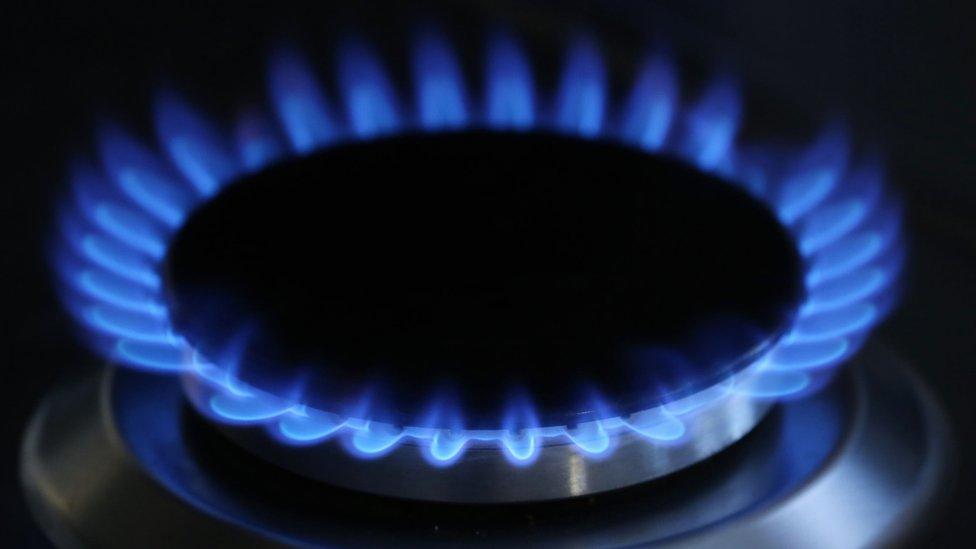
- Published17 June 2019
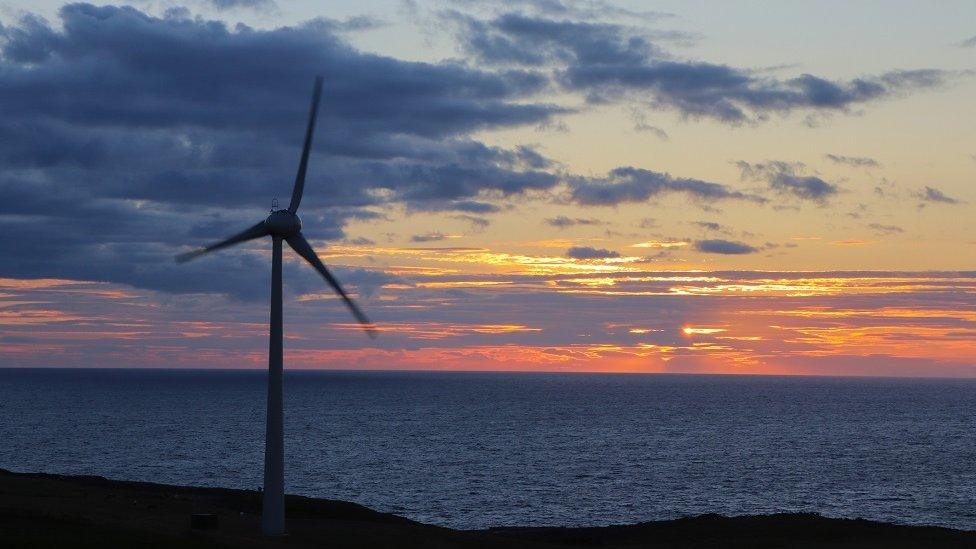
- Published26 March 2018
